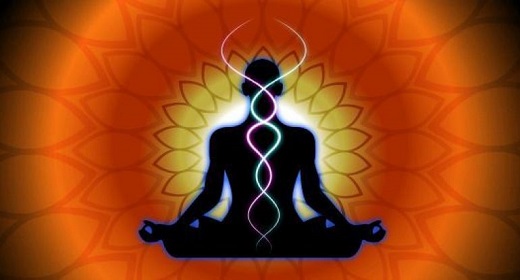by Nish Phister: The first big bout of depression came on when I was about 15/16. All I can say to describe it is despair and helplessness. I tried to end my life. I was not looking for help or sympathy, just wanted to get away from it…
What I call the black hole in my belly became a well known visitor in my life. There was no warning, when it appeared, I fell deep. Just despair, nothing else. Every time I reached a point where I felt it could not be any worse. Then, exhausted sleep and somehow, I managed to live on, even forget about it for long periods of time. Apart from these episodes, I had a good, interesting life, active in politics, a satisfying time doing science at university, active for the environment, doing satisfying and interesting work in construction.
And always, trying to learn, trying to understand. The question of existence was always there, because the recurring fall into this black hole questioned my existence. So, of course I was always looking for answers. There are lots of people with answers, some quite convincing, at least for a while. I met a few. I read a lot. Nietsche and Hermann Hesse helped me in my teens. Philosophers old and new, political activists, writers, spiritual teachers and gurus too many to list followed.
Eventually I learned to stop looking outside for answers and tried to look inside, to meditate. But only the practice of Zen meditation moved me from talking and thinking about it to doing it, experiencing it.
It was years of work, guided by a patient and earnest man. He did not insist on any rituals, he wasn’t affiliated with any school, there was a group of people working with him, we had group talks and discussions, and individual sessions. Then, on a retreat, there was a Kensho experience. (It would be silly to say: “I had a Kensho experience”, because that’s a contradiction in itself) (Kensho: to see one’s true nature)
It was a non event, in one sense, because nothing happened. You don’t gain anything, you lose. It’s a fundamental change about yourself, and it’s silly trying to explain it. You don’t debate it, you experience it. I’m not trying to be mysterious here or something, but it’s not something you can have or learn. All you can do is the practice: in an old text it says: “…with the mind observe the mind…”.
That’s the practice, observe your mind. Whatever you find, reject: -not this- just notice. Whatever is there, whatever comes up, notice it and leave it. You reach somewhere -not this-, you find something -not this-.
It is good to have a teacher (actually I don’t know if it’s possible without one) to take all those things to. That’s what I did with my teacher, every insight I had, all those important thoughts, my impatience, my anger, my despair, my depressions, my intellectual explanations, my soaring flights, my crushing falls, all I took to him, to be told, in so many words: -not this-.
Some years on my teacher announced his retirement and asked me to take over teaching. And that’s what I’ve been doing. Now one of the things he used to say was: if you want to learn something well, you teach it. So what did I learn teaching Zen?
It is easy to like the role of teacher. You find yourself in a position where you are the one telling others. This is a social situation where you assume a role and others treat you accordingly. On flyers and invitations you are called Zen master. People refer to you as such. I was uneasy about that. To be called it is a social thing, master indicates superiority. Any mastery can only be in the practice of Zen, you do it or you don’t, so what. That’s what you observe, and leave: -not this-, same old, same practice.
The capacity of the mind to delude itself is unlimited. Easy to see in others, better yet to notice when it happens to yourself. Keep practicing: observe it, and leave it. Zen is ordinary, Zen is practical. Take care of your life, do your jobs. Take part in life, be ambitious or not, enjoy what there is to enjoy, fight what needs fighting, have friends and enemies, be happy and sad, live life, go for the ride …. and observe your mind.
Kensho and Satori don’t make your life better, it doesn’t make you blissful or happy, if you have an expectation, you will look for that expectation, which will prevent you from experiencing. Having an experience also isn’t a guarantee for anything, for example it didn’t stop depression from recurring, I should have been warned about that, my teacher mentioned once: “So you wake up and are depressed, so what?”. But now I carry on with my practice: I don’t try to escape, I observe it and leave it there, I observe my mind’s reaction and also just leave it there. -not this- and that helps. It was a shock when I got depressed again, somehow I did have an expectation… Looks like the universe hasn’t got an obligation towards you because you learned something about yourself.
It didn’t get any better with me being uncomfortable about advertising my services, so to speak (I haven’t updated the web site in ages), so I don’t advertise. I always wanted to know if and how it’s possible to take the practice of Zen into ordinary life. It is, and deeply satisfying. I work as a Maths tutor and I grow and sell vegetables and salads. Every so often I feel I should let it be known that I am here and what I know about Zen. The whole thing has been and is a very personal development. I can share this. If it helps others, good. I’m not telling anyone what to do, your life is your own responsibility, but I’m happy to help.
I mostly avoid talking about the Kensho and Satori experience, because it creates expectations, and they get in the way. Also, any description is like for example describing a sunset instead of looking at one. No matter how accomplished you are, it is still about it, and not it. But lets just say, Nirvana, that’s for real, man.


















































